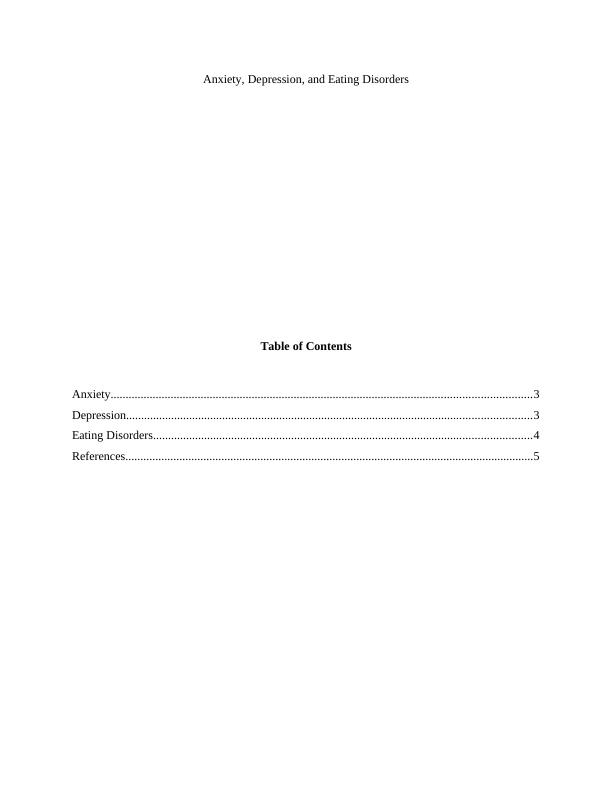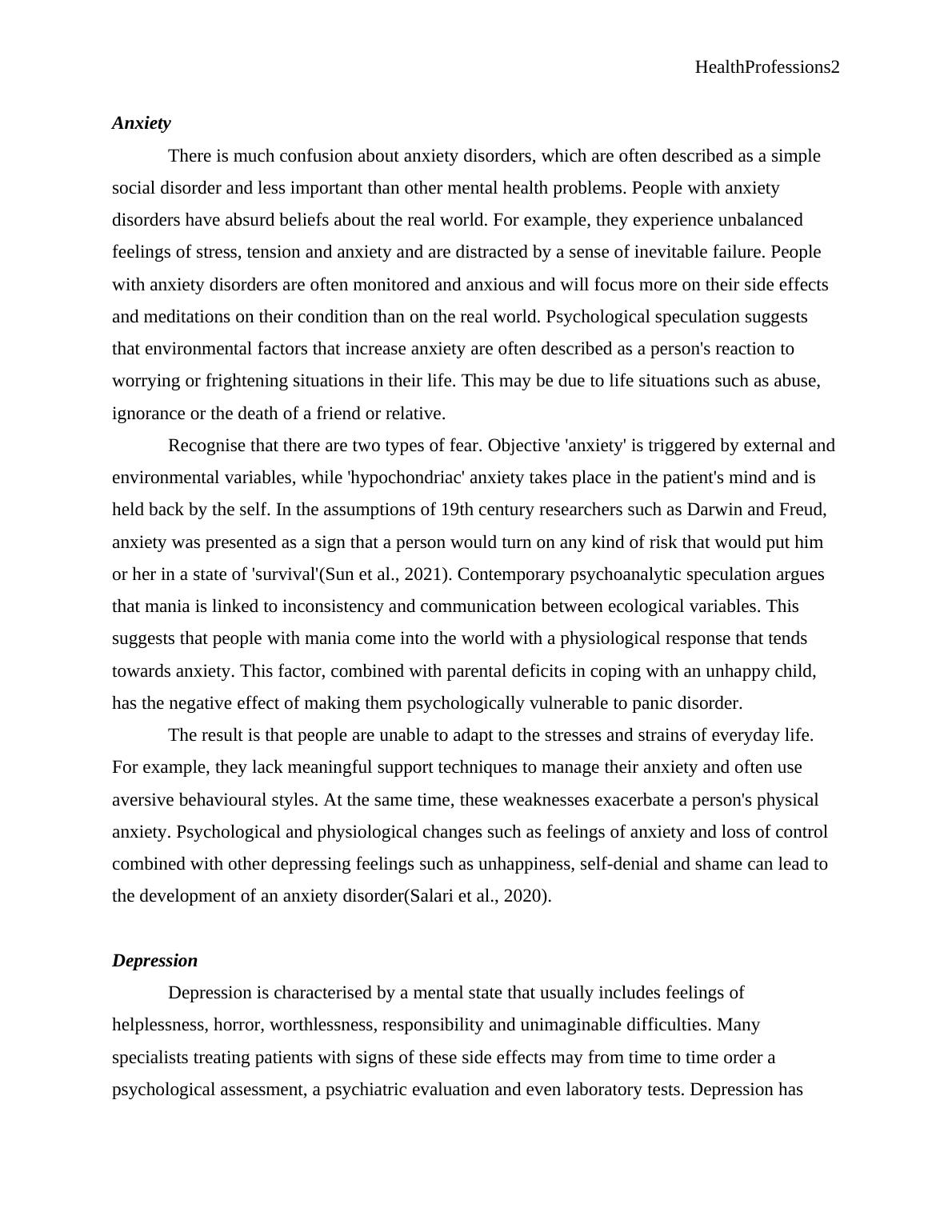Anxiety Depression and Eating Disorders Assignment 2022
Added on 2022-10-14
5 Pages1422 Words23 Views
End of preview
Want to access all the pages? Upload your documents or become a member.
Mental Health: Symptoms and Causes of Psychosis, Depression, and Mania
|15
|5226
|95
Depression and Anxiety Issue 2022
|4
|1212
|17
Psychiatric Disorders: Types, Symptoms, and Treatment
|6
|2068
|4
Theoretical Approaches to Mental Illness
|10
|2037
|481
The Impact of Mental Illness Essay
|8
|1974
|49
Understanding Anxiety, Depression, and Eating Disorders: Causes, Symptoms, and Treatment
|31
|6226
|50


